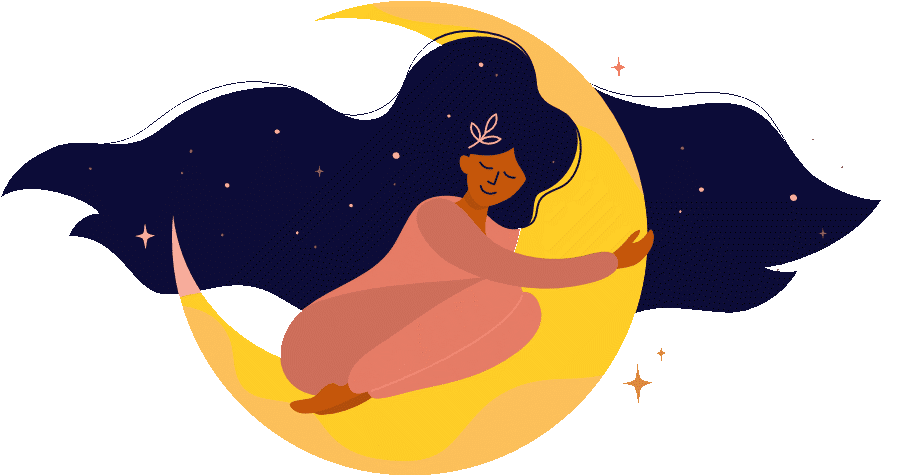
CBD, Cannabinoids, and Anxiety: What’s the Current Evidence?
Are you looking to buy Full Spectrum CBD Oil in Canada to manage stress? There’s been plenty of widespread adoption of CBD by those who are wishing to treat Anxiety. While plenty of anecdotal evidence exists, what does the most up to date research tell us? The state of research into cannabidiol (CBD) and related cannabinoids for anxiety relief continues to evolve. An increasing number of studies and real-world reports are shaping our current understanding. Drawing from the latest randomized controlled trials, systematic reviews, and anecdotal community experiences, we will try to prevent a coherent overview of the best available evidence and survey contemporary studies to provide a clear picture.
CBD Efficacy treating Anxiety Disorders
Multiple clinical trials and systematic reviews highlight that CBD can reduce symptoms of anxiety with minimal adverse side effects, especially in comparison with traditional medications. For example, a 2024 systematic review of randomized controlled trials found that across anxiety disorders—including social anxiety disorder (SAD), generalized anxiety disorder (GAD), and post-traumatic stress disorder (PTSD)—CBD demonstrated a trend toward anxiety reduction, though differences in dosage and study methodologies produced some conflicting outcomes. Overall, side effects were rare and mild, positioning CBD as a promising anxiolytic option.
Types of Anxiety Studied
Research efforts have spanned a range of anxiety conditions:
- In SAD and GAD, several studies have shown that oral CBD doses of 300–600mg can significantly reduce anxiety during laboratory-induced stress, such as public speaking tests.
- There is also evidence that CBD may enhance fear extinction, offering potential benefits for PTSD treatment protocols.
Broad- and Full-Spectrum CBD available in Canada
Emerging studies suggest full-spectrum and broad-spectrum CBD products—those that contain a combination of cannabinoids and terpenes—may outperform CBD isolate due to the so-called “entourage effect.” Recent summaries and user reports indicate that both full-spectrum (\<0.3% THC) and broad-spectrum (THC-free) products provide anxiolytic benefits, with some individuals preferring THC-free formulations to avoid unwanted psychoactive effects. BuyMellow offers quality natural Broad and Full Spectrum CBD Oils shipped across Canada
Optimal Dosages for Cannabinoids
Effective dosages vary widely among users and across clinical settings, from as low as 10–25mg to several hundred milligrams daily. While some clinical effects start appearing at 20–50mg per day, other users—especially those with high baseline anxiety—may need higher doses. The common clinical advice is to start with low doses and titrate upward gradually depending on individual response.
Insights from Recent Clinical Studies
Public Speaking Test
Several studies employing simulated public speaking—a validated model for inducing acute anxiety—found that single oral doses of CBD at 300mg and 600mg consistently reduced anxiety, but 100mg and 900mg doses did not offer additional benefit. This points to a “sweet spot” for CBD dosage in treating acute anxiety.
Acute vs. Long-Term Effects
A 2024 study from the University of Colorado Boulder found that adults using CBD-dominant cannabis experienced substantial reductions in tension and anxiety both immediately and in longer term use. Notably, these benefits occurred without any cognitive impairment or paranoia, effects that are often associated with higher-THC content products.
Quality of Life Improvements
Beyond direct anxiety reduction, CBD has been shown to enhance sleep quality and ease physical symptoms—both important for general mental well-being and resilience against anxiety.
Review of Recent Primary Studies
- University of Colorado Boulder (2024): This study observed that CBD-dominant cannabis led to significant, immediate, and sustained reductions in perceived anxiety. Users reported clear-headedness and minimal adverse effects compared to those using THC-dominant or non-cannabis products. Researchers attribute part of the anxiolytic (‘anxiolytic’ being a medication that alleviates anxiety) effect to CBD’s anti-inflammatory properties, though as always, they emphasize the need for larger, long-term studies before making clinical recommendations.
- Frontiers in Pharmacology Review (2024): Summarizing current neuroscientific knowledge, this review reported that CBD reduces resting-state brain activity in areas associated with anxiety (e.g., the amygdala and prefrontal cortex), providing a theoretical basis for its anxiolytic effects.
- Phase 2 Clinical Trial (2022): An acute, randomized, controlled trial confirmed that a single administration of CBD reduced anxiety during experimentally induced stress in healthy adults. These findings echo earlier trials—especially those using simulated public speaking tasks—where 300–600mg oral CBD reliably reduced acute anxiety symptoms in both healthy volunteers and those with SAD.
- Additional Trials and Systematic Reviews: Multiple smaller-scale clinical studies and meta-analyses report that CBD reduces anxiety across a spectrum of disorders (GAD, SAD, PTSD) and confirm CBD’s favourable safety profile, even at higher daily doses, without producing significant side effects or risks typical of sedatives and anxiolytics.
Caveats and Limitations
Despite these encouraging outcomes, variability in study methodologies, small sample sizes, and the predominance of short-term data spotlight the need for chronic, large-scale, placebo-controlled studies. Optimal dosing schedules and long-term effectiveness remain poorly defined.
Anecdotal Testimonials: Reddit Community and User Experiences
Anecdotal evidence from communities like Reddit (notably r/Anxiety and r/CBD) provide some interesting insight into how CBD is experienced in real life outside of controlled clinical trials:
- Dosage and Effects: User reports span a broad range, with some individuals requiring upwards of 100–200mg to manage anxiety, while others respond well to 10–25mg, especially for sleep or acute episodes. Tolerances must be taken into account.
Personalization: Responses are highly individualized, with some users reporting profound improvements in social and general anxiety, while others notice minimal effects or even heightened anxiety (especially with THC-containing full-spectrum products). This is in finding with many other studies and anecdotal reviews, there is great variability amongst different people. - Safety Profile: Most testimonials indicate that side effects are rare and mild. Those seeking to avoid psychoactivity or paranoia often prefer broad-spectrum or CBD Isolate.
- Contextual Use: Users consistently stress that CBD works best alongside holistic and comprehensive mental health strategies, such as therapy, mindfulness, and proper sleep.
“It didn’t completely eliminate my anxiety, but it did help me unwind…CBD has provided a helpful boost when I needed it.” – Reddit user
Other users note that it’s the residual THC that is often found in CBD formulations that cause the anxiety. This is another area where more study is required to confirm.
“Pure CBD cannot cause anxiety because CBD is anxiolytic (anxiety-reducing). In almost all cases of CBD products causing anxiety it’s because they contain a small amount of THC and the person happens to be sensitive to its effects. So I reckon your oil might actually contain small amounts of THC “ – Reddit User
Limitations and Future Directions
- Regulatory and Quality Issues: The lack of standardization and regulation for CBD products means efficacy and safety depend heavily on brand reputation and third-party lab testing. Variability in cannabinoid composition and dosage can be significant even within the same product line.
- Insufficient Long-Term Data: Most clinical trials are short in duration and limited in participant number. Robust, large-scale trials are urgently needed to confirm efficacy, determine optimal dosing, and assess long-term safety.
- Role of the Entourage Effect: Scientific and anecdotal sources suggest enhanced effects from products containing multiple cannabinoids and terpenes, but quantifying the “entourage effect” remains an area of active inquiry.
Conclusion
The consensus of current research and anecdotal community discussions indicate that CBD is definitely a promising compound for anxiety management, with particular advantages in acute anxiety scenarios and an improved safety profile compared to conventional anxiolytics. While there is clear consensus on its benefit for many, determining the ideal product and dosage is a variable and highly personal process. Caution in sourcing and ongoing consultation with healthcare professionals are essential, and expectations should be measured as scientists continue to explore the longer-term implications and broader applications of CBD therapy.
Individuals considering CBD for anxiety relief should begin with low, lab-verified doses, monitor their personal response, and work closely with a healthcare provider—especially if combining with other treatments or medications.
Be sure to visit our online store at BuyMellow.com to source the Best CBD Oil and gummies in Canada.



